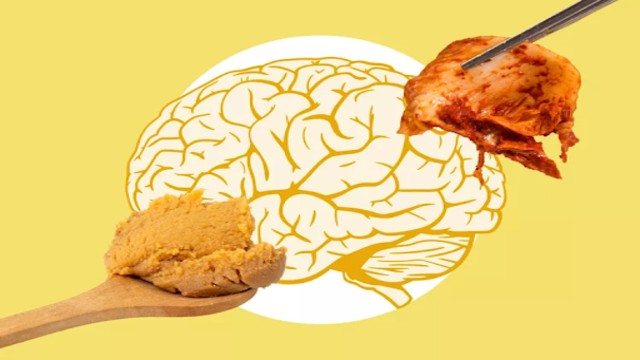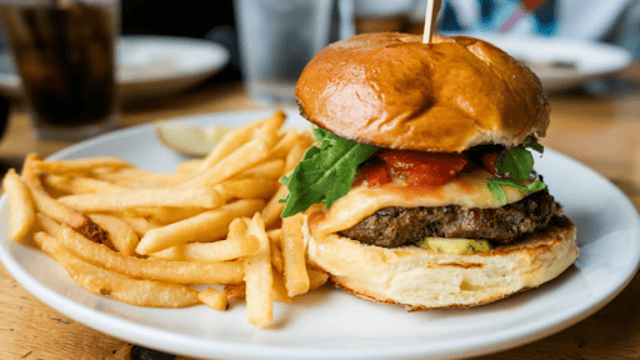
Image Credit: Food & Wine / Getty Images
Your gut and brain are constantly connected, which means what you eat affects how you feel. A recent study found that fermented foods like kimchi, yogurt, and miso could ease symptoms of anxiety and depression. These foods contain probiotics, which are beneficial bacteria that support gut health and may positively impact mood.
Researchers discovered that probiotics in fermented foods can reduce activity in the amygdala, the brain region responsible for processing fear and emotions. In their study, mice that ate probiotics displayed lower stress and anxiety behaviors compared to those that didn’t. The scientists believe these mood improvements happen because probiotics boost neurotransmitters like GABA, which help regulate stress and emotions.
Experts say that while the study results are promising, most of the research so far is based on animal trials. More human studies are needed to confirm the mental health benefits. However, doctors agree that adding fermented foods to your diet can still promote better gut and overall health.
How Fermented Foods Boost Mental Health
Fermented foods introduce good bacteria into the gut, which supports a healthy balance of microbes. This, in turn, strengthens the gut lining, reduces inflammation, and influences brain chemicals that affect mood. According to doctors, probiotics from fermented foods can lower C-reactive protein levels, which reduces inflammation linked to anxiety and depression.
These foods also increase short-chain fatty acids, which are known to benefit both the gut and brain. By promoting a healthier gut environment, fermented foods can enhance the gut-brain connection, improving mental well-being.
Choosing the Right Fermented Foods
Not all fermented foods offer the same mental health benefits. For the best results, experts recommend choosing foods labeled with “live and active cultures.” These contain probiotics that support gut health. However, pasteurized fermented products, such as some pickles or sauerkraut, lose their probiotic benefits because the process kills the live bacteria.
Here are some fermented foods to include in your diet:
- Yogurt and Kefir: Both contain Lactobacillus and Bifidobacterium, probiotics linked to better mood and lower anxiety.
- Kimchi and Sauerkraut: These are rich in lactic acid and prebiotic fiber, which feed good gut bacteria.
- Miso and Tempeh: Made from fermented soybeans, they contain probiotics and amino acids that promote brain health.
Doctors suggest being mindful of sodium and sugar levels in some fermented foods. Consuming too much salt or sugar can negatively affect gut health.
How Much Should You Eat?
There is no fixed amount for fermented food intake. Doctors recommend starting with small portions and gradually increasing them. Eating too much too quickly can cause bloating or digestive discomfort.
For a healthy gut, experts suggest including at least one serving of fermented food daily. This could be a cup of yogurt, a small bowl of miso soup, or a few spoonfuls of kimchi.
Consistency is key. Regularly eating fermented foods over time can lead to better gut health, which may improve mood and reduce stress. However, fermented foods are not a replacement for therapy or medication. Those experiencing mental health issues should consult a doctor.















